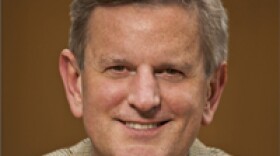Joyce Yang is an internationally acclaimed pianist and a familiar name on the Aspen Music Festival and School summer schedule.
Now 36, she’s slated to return this summer, but eager fans of the virtuoso can also see her in Aspen on March 16th for a performance at Harris Hall, closing out the music festival’s “Winter Music Recital Series.”
For the upcoming performance, Yang plans to explore the changing of the seasons and the passage of time with selections from Rachmaninoff’s “Thirteen Preludes,” op. 32, Tchaikovsky’s “Les saisons,” op. 37b, and Stravinsky’s “The Firebird” suite, which was transcribed for piano by Guido Agosti. Tickets for the 6:30 p.m. show at Harris Hall are available through the music festival’s website.
Kaya Williams spoke with Yang last week about the story these compositions tell and the introspection they inspire.
Kaya Williams: I'm curious, is there a story or a narrative that you're trying to tell as you move from each composition to the next?
Joyce Yang: I think in a recital setting, I feel that it's really a conversation within myself. It's a scary process to have to say a monologue, really, for an extended time. And solo recitals are usually very, very challenging for me, much more challenging than playing with another person or an orchestra.
And when I do a solo recital, I really try to give myself a chance to really converse with different parts of myself, so at least, I am interacting with different opposing voices, if you could say, within my system. And this program, I think, is something that I've created, so that I am able to really draw energy from very opposing sides of myself. It has complete serenity, where I have to, you know, really go into a personal, private, quiet place, and remember the very precious moments, followed by something incredibly dramatic and exciting, that I can sort of, you know, travel to another part of my psyche.
So for me, it's a very much a journey, this program, and it's kind of, also, a dangerous one, because there are so many different moods and characters. But I think, I guess the narrative behind it is that it's really, really visiting all the little rooms of my psyche, and really telling you a story that I think it's an essential journey from all of these composers. And I think, in this order of very contrasting energy levels, I'm able to pinpoint different moods better, because they are constantly opposing in character.
So I hope that this is a thrilling ride for the audience, and it will be a very — an active listening, I think. There isn't really a moment where you sort of drift off to a dream. I'll constantly be speaking with you and interrupting your imagination in a way, but hopefully, it'll be a welcomed interruption as we go through all the unexpected and jagged turns together, like in one rollercoaster.
Williams: And as you've been entering these rooms of your psyche, and engaging with these opposing sides of yourself, have you had any self discoveries or personal revelations or you've been working on these pieces?
Yang: I think these pieces bring out many challenges, but I think what I've really discovered is that, you know, finding peace and serenity, those very simple moments are actually incredibly intense when it's surrounded by almost chaos and something hysterical.
I think those bubbles of utter peace are very hard to find. And I think when they are surrounded by louder moments in the recital, I think those softer, quiet, hushed moments rise to the surface. And I think that's what sometimes speaks louder than something very, very loud. So I've just been enjoying these moments, almost silences or pianissimo, very, very quiet moments that are hiding underneath something very dramatic. And this kind of — the ability to stop time and stop the energy or momentum in a way, I think, speaks very loudly in this kind of program.






